Contact center of the Ukrainian Judiciary 044 207-35-46
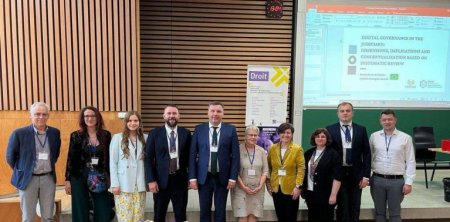
Reform of judicial systems, digital transformation of justice, ethical regulation and safe introduction of artificial intelligence (AI) into judicial practice - these and other issues were discussed at the International Conference "Judicial Systems in Transition: Reform, Innovation and Justice" held in Limoges (French Republic).
The conference brought together judges of the highest courts, international experts, professors from leading universities, representatives of CEPEJ, the European Law Institute (ELI) and the European Commission. The Supreme Court was represented at the event by Vitalii Urkevych, Secretary of the Grand Chamber of the Supreme Court, Yan Bernaziuk, Judge of the Supreme Court at the Administrative Cassation Court, Ivan Mishchenko, Judge of the Supreme Court at the Commercial Cassation Court, and Oleksandra Yanovska, Judge of the Supreme Court at the Criminal Cassation Court.
The conference programme consisted of thematic sessions, workshops and panel discussions, including access to justice, digitalisation of justice, ethics of AI, judicial independence, selection and training of judges, and efficient court administration.
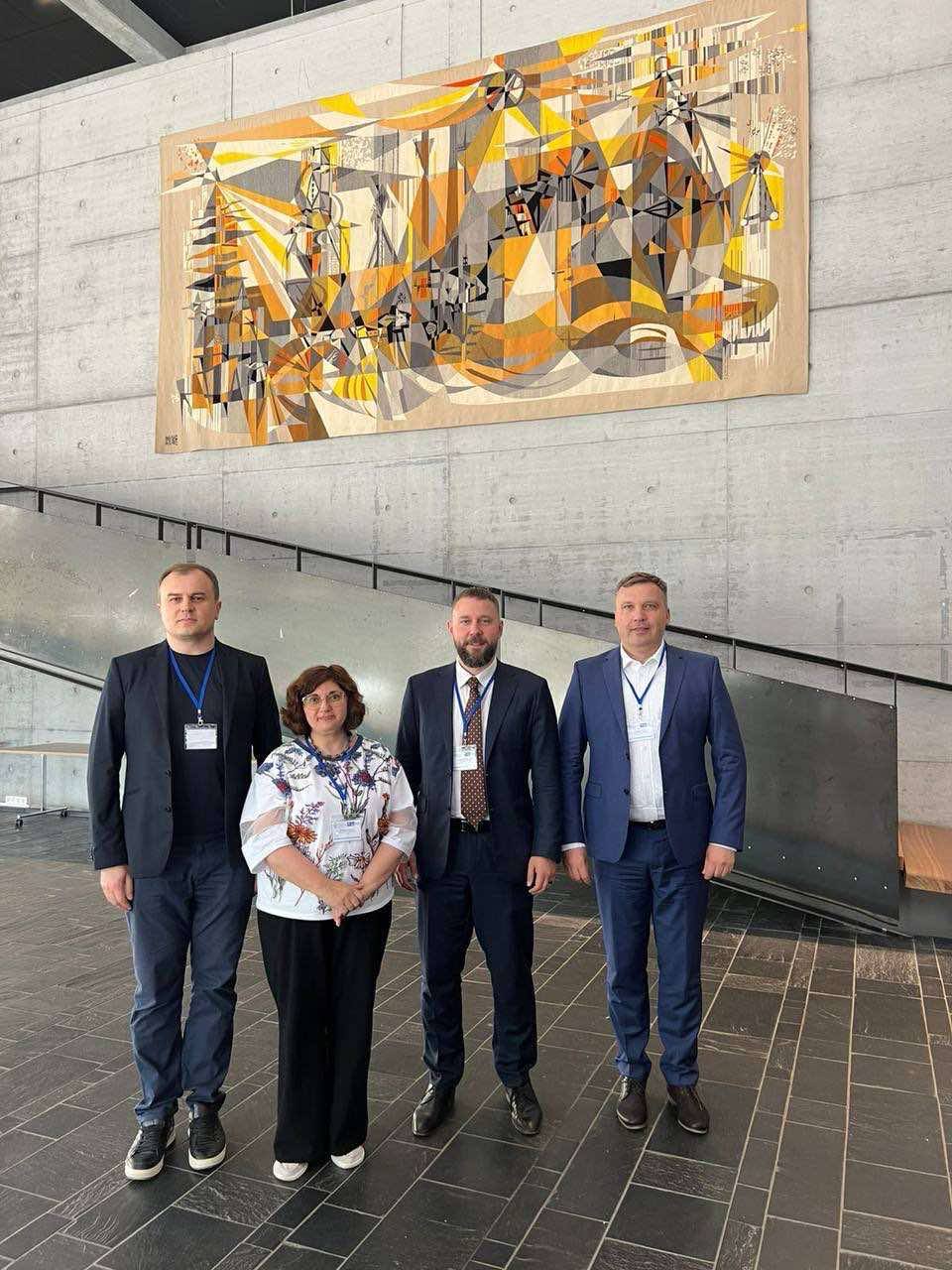
SC Judge at the CommCC Ivan Mishchenko spoke at the panel discussion '‘Building Judicial Integrity: the Role of Independent Selection Bodies in Ukraine". The speaker of the panel was also Reda Moliene, Chair of the Selection Commission for the Service of Disciplinary Inspectors of the High Council of Justice, as well as experts from the Pravo Justice project. The panel focused on the experience of competition commissions in the justice system, interaction between Ukrainian judges and international experts, the feasibility of extending the term of work of such commissions, and other related issues. The panel aroused keen interest among the conference participants, who highly appreciated Ukraine's experience.
At the session “Access to Justice and Artificial Intelligence”, SC Judge at the CrimCC Oleksandra Yanovska presented a report on “Digital and AI assistive technologies at the service of justice under martial law in Ukraine”. She noted that Russia's attacks on the energy infrastructure, combined with the staff shortage in the judiciary, have further complicated the work of the judiciary. A number of digital solutions have been implemented to ensure continuous access to justice.
The speaker emphasised that artificial intelligence will not replace judges, but it can significantly simplify routine tasks, allowing judges to spend more time on complex legal issues. The full implementation of e-justice and integration with the Ukrainian mobile application Diia are planned. This application provides citizens with access to a variety of digital documents and services, which will facilitate easy interaction with the judicial system.
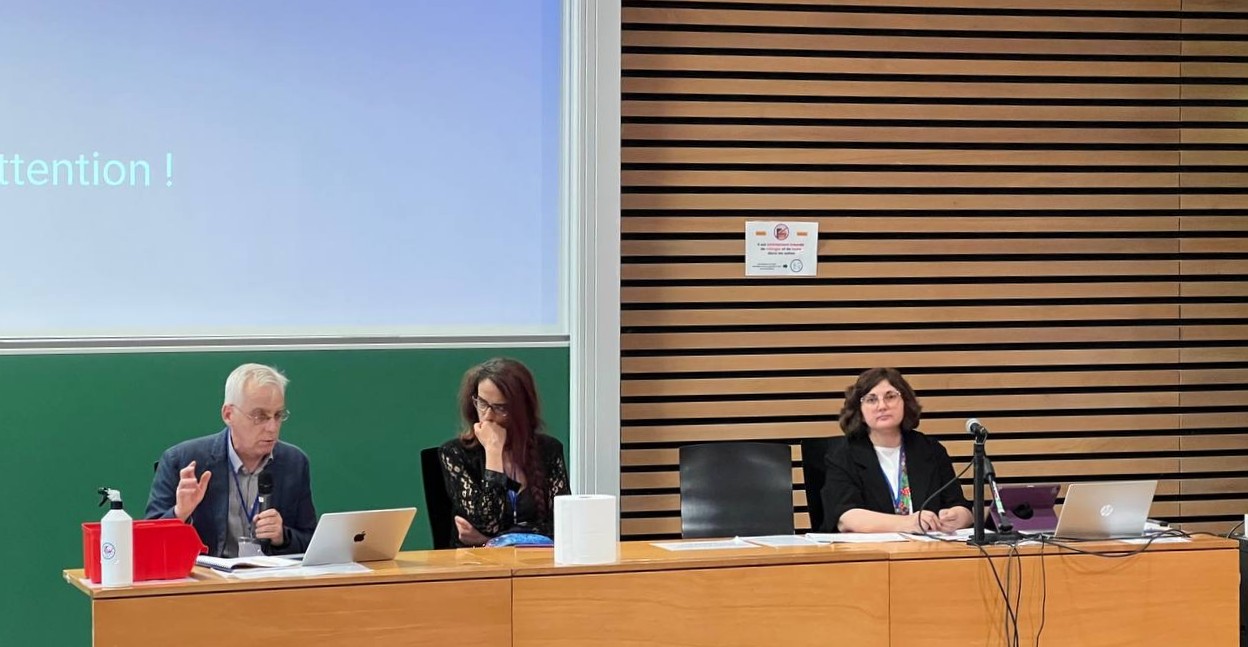
According to Oleksandra Yanovska, digital transformation is a key aspect of justice system reforms, especially under martial law. In order to take advantage of digital technologies and AI assisted solutions in court proceedings, it is necessary to focus on the following goals:
This includes further digitisation of public justice, provision of secure conference calls that facilitate the interconnection of national databases and registers, and secure electronic communication channels between competent authorities.
The speaker highlighted the legal positions on the limits of admissibility of AI in court proceedings. He outlined the development of the digital infrastructure supporting the Ukrainian judicial system and informed about the measures already taken to improve the competence of judges and their education in the AI era.
In his presentation, Yan Bernaziuk focused on the fact that AI serves as a powerful assistant to judges, but the responsibility for decision-making, evaluation of evidence, and maintaining the independence, impartiality of the judiciary and public trust remains solely with the judge.
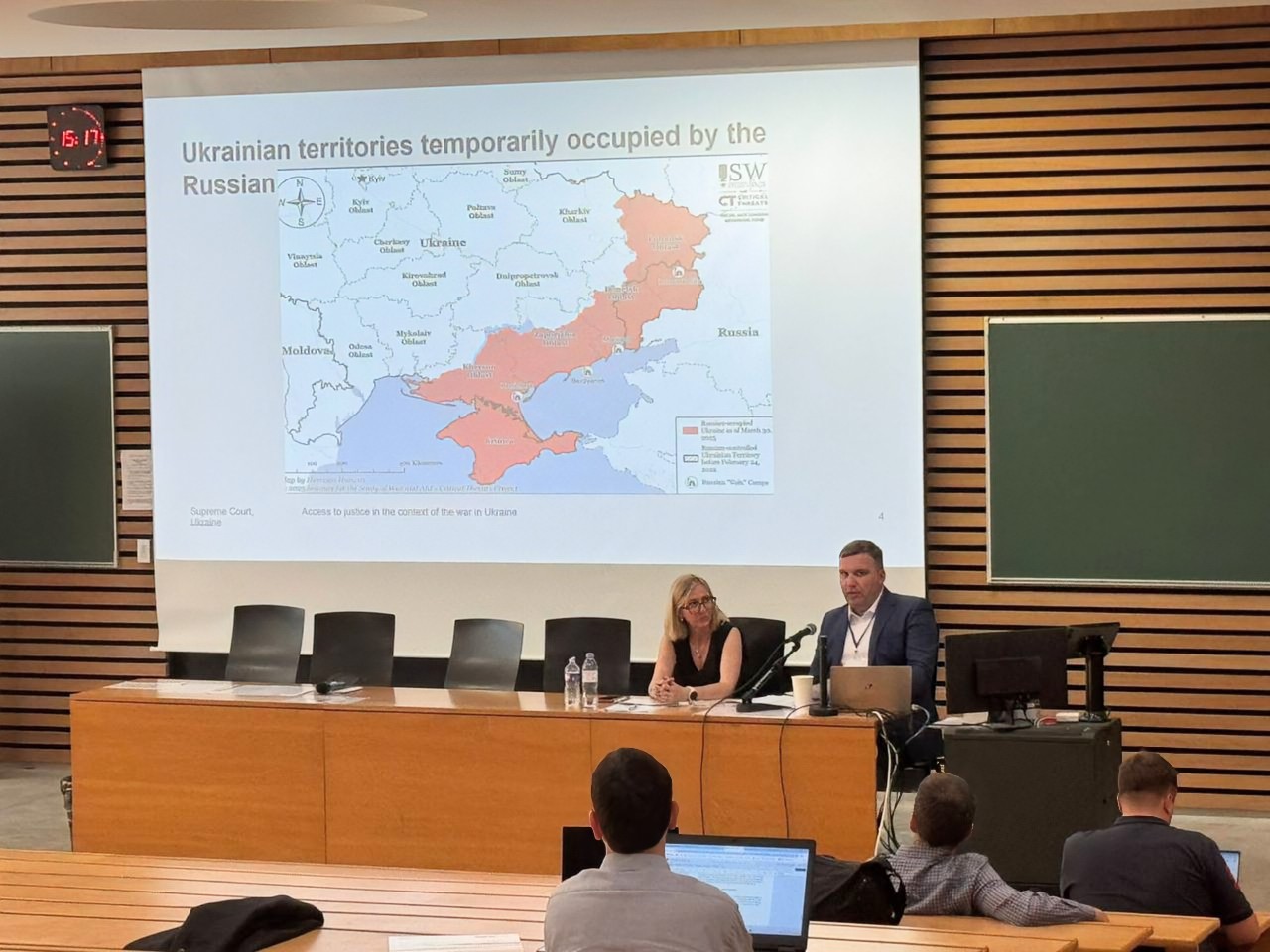
As part of the thematic session on procedural justice, Vitalii Urkevych, Secretary of the Grand Chamber of the Supreme Court, spoke about access to justice in the context of the war in Ukraine.
The speaker noted that access to justice implies the possibility of unimpeded recourse to the courts for the protection of one's rights. However, the war launched by Russia against Ukraine in 2014 and the full-scale invasion of the aggressor at the end of February 2022 significantly affected the exercise of this fundamental right. A significant number of citizens are deprived of the opportunity to go to court, especially in the territories of Ukraine temporarily occupied by the Russian Federation. The administration of justice is often hampered by air raids, lack of electricity, heating and internet connection, which leads to postponements of court hearings. Some court buildings have been damaged, and some of them have been completely destroyed as a result of missile attacks by the aggressor state.
Despite these and other challenges, a number of measures have been taken to ensure access to justice in times of war: changing the territorial jurisdiction of cases and transferring them to courts located in the territory controlled by Ukraine, temporary transfer of judges, active use of video conferencing for court hearings, etc.
The speaker emphasised that despite significant difficulties, the Ukrainian judicial system has proven its efficiency and ability to administer justice in wartime in recent years. The activities of the courts, as well as the tireless work of judges and court staff, are aimed at ensuring high standards of human rights, including the right to access to justice and the right to a fair trial, even under martial law.
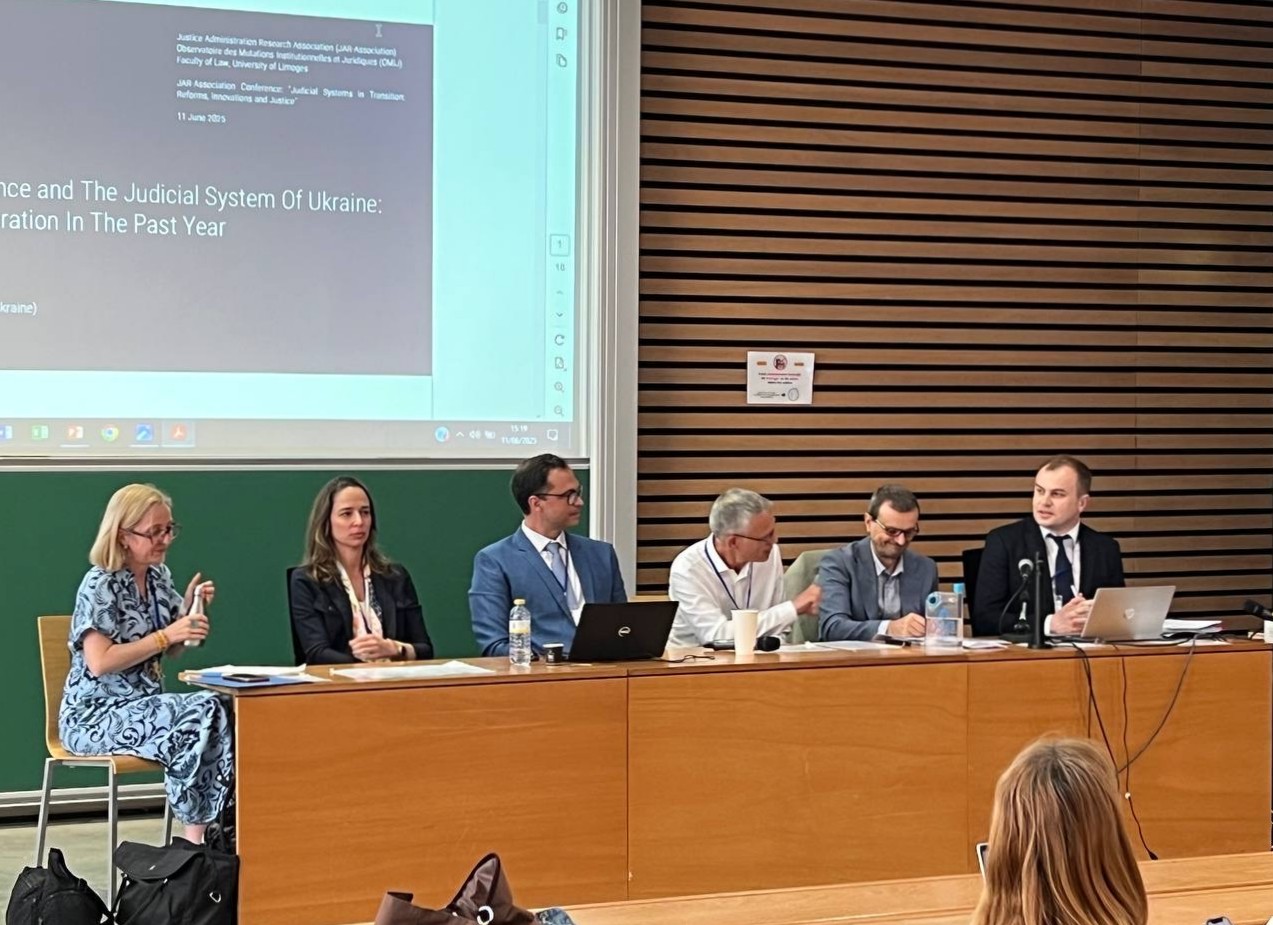
Speakers' presentations in English are available here:
presentation by Yan Bernaziuk - https://court.gov.ua/storage/portal/supreme/prezentacii_2025/AI_Ukraine_bernaziuk.pdf;
presentation by Vitalii Urkevych – https://court.gov.ua/storage/portal/supreme/prezentacii_2025/Urkewych.pdf;
presentation by Oleksandra Yanovska – https://court.gov.ua/storage/portal/supreme/prezentacii_2025/Yanovska.pdf.
The event was organised by the Justice Administration Research Association (JARA) in cooperation with the Faculty of Law of the University of Limoges (Faculté de droit de l'Université de Limoges), French Republic, and the Observatoire des Mutations Institutionnelles et Juridiques (OMIJ), a research centre at the University of Limoges.